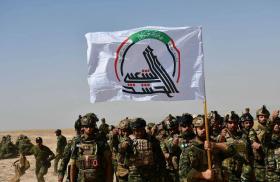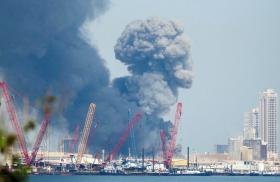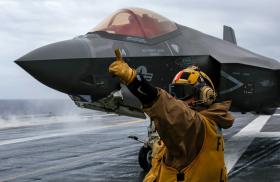Terrorist Wing of the Iraqi Government Opposes Sharaa Visit
Two of Prime Minister Sudani's partners in government—the terrorist groups Kataib Hezbollah and Asaib Ahl al-Haq—have stepped up their efforts to bar Syria's new president from a Baghdad summit.
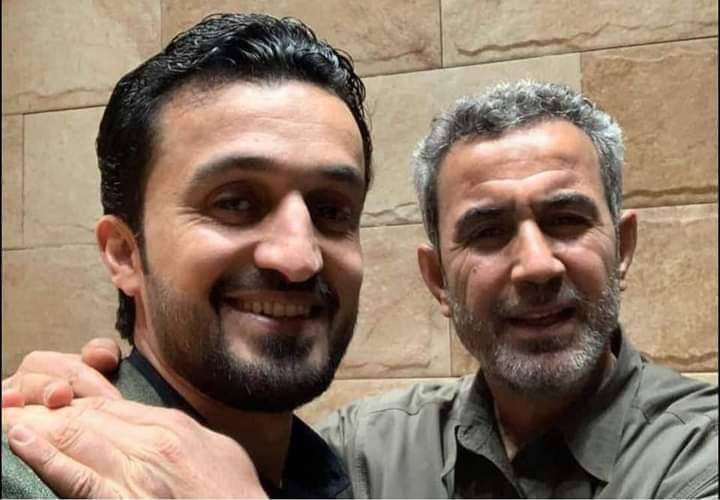
As Iraq’s campaign season begins ahead of the November parliamentary election, several self-styled muqawama (resistance) media outlets have intensified their challenges to the government for inviting new Syrian President Ahmed al-Sharaa (aka Abu Muhammad al-Jolani) to attend the May 17 Arab League summit in Baghdad. (For a previous look at this trend, see this Militia Spotlight piece.)
KH, Sanad, and Kilabi Lead the Charge
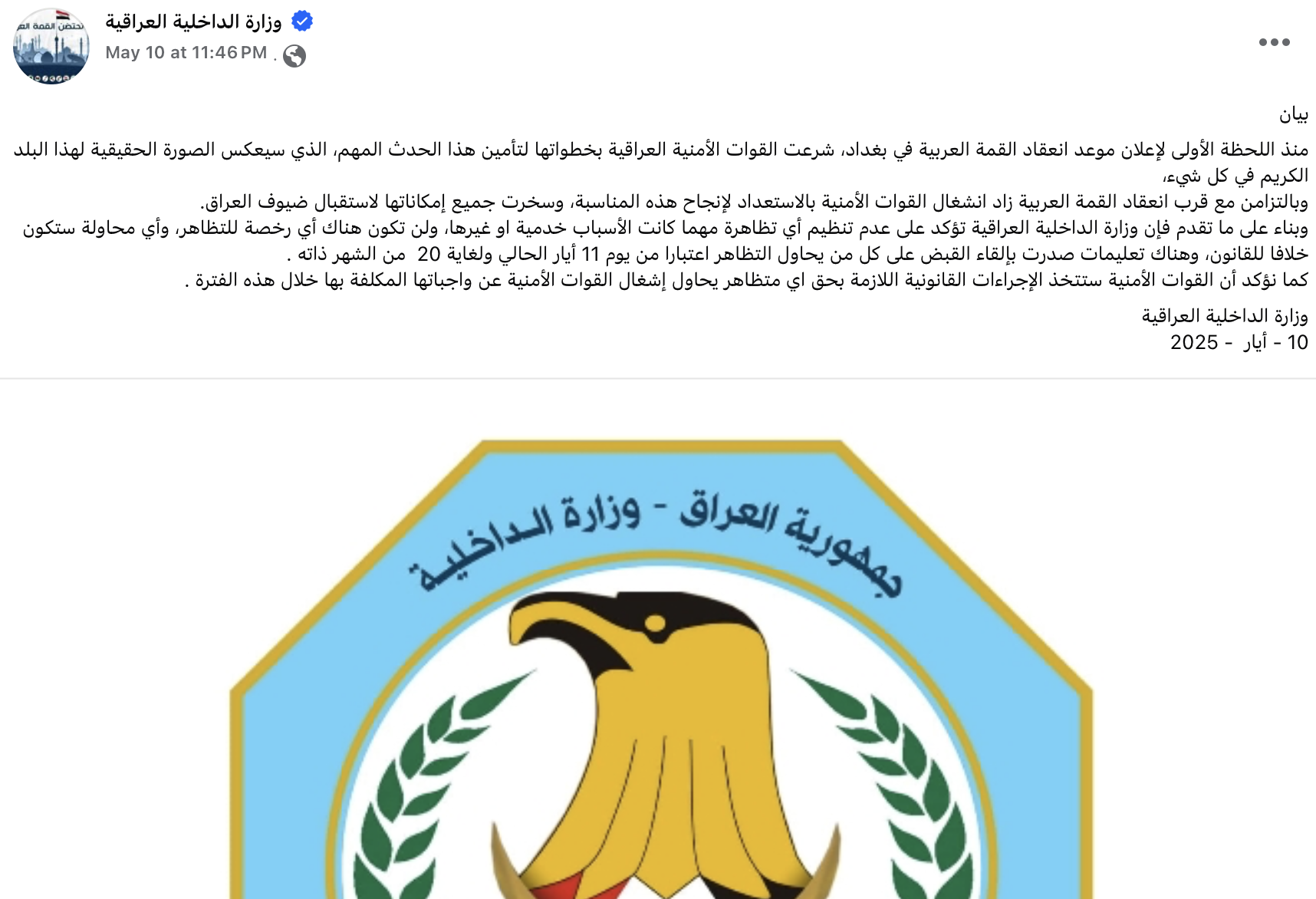
The Iraqi members of parliament lining up to oppose the visit are almost identical to the guest list at the formal funeral held for Lebanese Hezbollah leader Hassan Nasrallah in February. On May 11, Mustafa Sanad, a parliamentarian linked to Kataib Hezbollah (KH) (Figure 1), took his place among the most vocal opponents of the invitation by calling for protests in Basra and Baghdad. This prompted a swift response from the Ministry of Interior, which warned that any protests held between May 11 and May 20 would be illegal (Figure 2). Sanad’s post was widely shared across muqawama social media, and his follow-up comment directly challenged the ministry: “I will protest. If you have the guts, arrest me.” Sanad is a protege of Adil Abdulmahdi and a key figure in the former prime minister's officer when Abdulmahdi presided over Iraq’s first muqawama-run government in 2018-20—a period that included the 2019 massacres of civilian protesters during the Tishreen uprising. As Militia Spotlight has previously noted, Abdulmahdi is now a political godfather to many Iran-backed militants in Iraq.
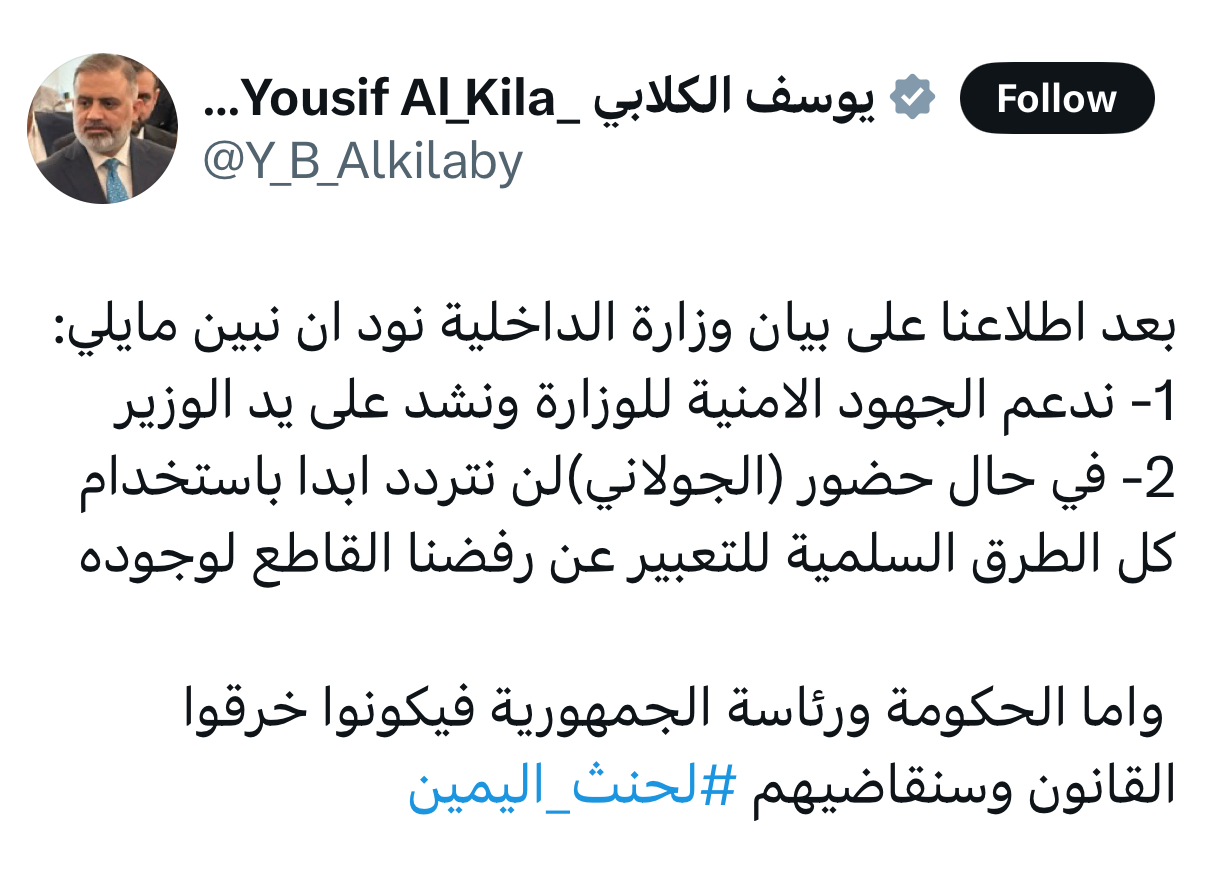
Another pro-muqawama parliamentarian, Yousif al-Kilabi, also responded to the ministry's statement with a post on Twitter/X: “In the event of Jolani's presence, we will not hesitate to use all peaceful means to express our unequivocal rejection of his presence. As for the government and the presidency of the republic, if they breach the law, we will hold them accountable" (Figure 3). Additionally, the head of KH’s Hoquq bloc, Saud al-Saadi, sent a parliamentary inquiry to the ministry requesting the legal basis for banning protests during the summit (Figure 3). Saedi is notorious for his role in undermining Iraq's maritime agreement with Kuwait.
Badr vs. Asaib
In contrast, the Badr Organization continues to back Sudani and draw criticism away from him. On April 30, Badr member Uday al-Khadran told Shafaq News that the militia political leadership in the Coordination Framework had authorized Prime Minister Sudani to decide whether Sharaa should participate in the summit or not. Notably, Khadran is the former mayor of Khalis, the home district of Badr leader Hadi al-Ameri and a stronghold for the organization. On May 4, Ameri defended Sudani on al-Janoub TV, directing blame toward the unnamed Arab states that “recognized Jolani...as a head of a state,” leaving Iraq unable to deny him an invite due to Arab League protocol (Figure 4).
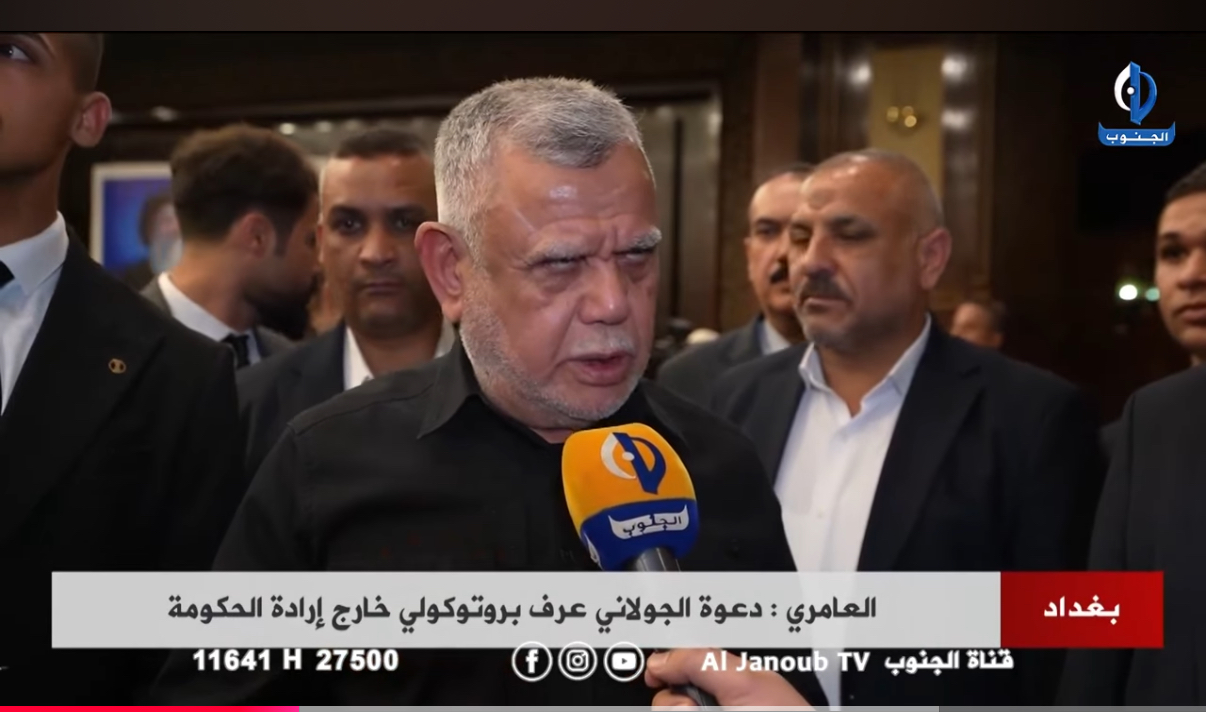
Reflecting the poor pre-election relations between Badr and the U.S.-designated terrorist group Asaib Ahl Al-Haq, AAH parliamentarian Uday Awad told al-Rabiaa TV on May 7 that Ameri was “singing outside the flock,” denying that the Coordination Framework had authorized Sudani to invite Jolani. This is one of many attacks AAH has made against Sudani and the Sharaa visit in the past month.
PMF Downplays Tension Over Poster Removal
The Popular Mobilization Forces (PMF) likewise seem intent on defusing the war of words over the Arab Summit. On May 11, several social media platforms circulated imagery showing authorities in Baghdad removing posters and billboards depicting slain muqawama fighters and other prominent "resistance" figures. One widely shared video included interviews with individuals near the removed posters, with one person accusing the Baghdad municipality of

clearing the images in preparation for the Arab Summit. Indeed, Iraq's government is well aware that it will gravely offend and alarm Gulf Arab leaders if they are forced to drive past massive billboards bearing the images of terrorists who have regularly endorsed and carried out attacks on their countries in recent years. On May 12, however, the PMF Media Directorate tweeted a formal denial of the allegations, calling them “misinformation” (Figure 5).
Key Findings
Moments like these always provide useful insight into the fracture lines between muqawama factions. The inherent tension between the Iraqi state (led by a putative chief executive, Sudani) and the terrorist-led Coordination Framework (who essentially installed Sudani as their "general manager") is exposed at such times. The November election adds another layer to this tension: Sudani's current backers for a second term (Ameri and PMF Secretary-General Faleh al-Fayyad) see the need to protect him as a candidate and statesman, while Fayyad's nominal PMF deputy, the U.S.-designated terrorist and KH member Abu Fadak (seen with Sanad in Figure 1), is staying on the sidelines of the Sharaa spat, as is Sudani's election rival Nouri al-Maliki.
Other parts of KH and all of AAH are coming after Sudani for different reasons—the former because they genuinely oppose Sharaa's visit on ideological and personal grounds, and the latter because they want to damage the prime minister. Meanwhile, so-called "independents" like Kilabi are pulling free of their original benefactors (in his case, Badr) and making their own calculations ahead of the election, seemingly distancing themselves from Sudani for now. Interestingly, none of these actors are calling on their political godfather Abdulmahdi or their patrons in Iran to play peacemaker in these dramas, probably because there is still a lot of time to kiss and make up before the election, and because Tehran is not keen to see Sharaa in Baghdad either.

